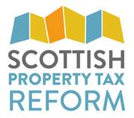The Last Post (for 2017)
A final piece for 2017 reflecting on the year now ending.
Brexit overwhelms most everything else. Back in the Spring, Duncan Maclennan and I presented a paper at the Housing Studies Association on our thinking about Brexit’s implications for UK housing. The consequences of Brexit remain far from clear (and that is the most constructive excuse I can give for not yet finishing that paper). That said, it seems evident that there will be important housing consequences flowing through exchange rate risk, medium term fiscal pressures, construction capacity shortages and the wider changes on economic prospects and how they feed in to housing demand.
The General Election was a curious affair. It seems like a long time ago now but even in the summer of 2016 when Theresa May became prime minister, people began to speculate on when the election she said would not be called, would actually, inevitably, happen. No-one in the media questioned the election until probably the day the publication of the manifesto pushed the funding reforms for social care. Very few people felt even on the day of the election that the Conservatives would not have their majority and mandate for their form of Brexit. Key assumptions have not been borne out or are at risk: a majority with the mandate to go forward with its vision of Brexit; a pliant Commons allowing them to ‘get on with it’; and, the capacity competently to manage the domestic economic and social agenda (what has come to be called in Scotland the ‘day job’).
In Scotland, we have now had a full year of the new Scottish Parliament and have settled in to a minority government and a new domestic political agenda majoring on the new tax and social security powers, narrowing the educational attainment gap, legislating on planning system reform, delivering affordable housing supply targets and doing more to tackle homelessness. This was also the year that legislation reformed the private rented sector creating open ended tenancies and the capacity for local rent pressure zones (a form of locally designated limited rent increases).
The Grenfell Tower disaster was a human tragedy and a collective failure of policy and practice. It is still, at this distance, hard to grasp the scale and horror of what happened. It will continue for many years to have substantial repercussions, especially for social housing high flats (just last week my council, North Lanarkshire, floated long term plans to demolish and replace their entire stock of multis). The response is also in part a recognition after the fire of the wider lack of understanding of contemporary social housing, who lives in it and what they experience. The enhanced concern with fire safety is also now rightly moving beyond the nonmarket stock to the rental market too. Grenfell in the short run is about understanding what happened that caused the fire and looking after everyone affected; in the longer run it will have wider consequences for housing, neighbourhoods and landlords.
The year for me, professionally, has been transformative. We established the UK Collaborative Centre for Housing Evidence, which started business in August in the Olympia Building in Bridgeton. After the best part of 10 years as a head of department and then directing Policy Scotland, I can now focus on housing research and have the privilege of working with an excellent team of co-investigators, staff and partners across the UK and beyond. It is all-encompassing and immensely enjoyable. However, we are now moving beyond set-up stage and into implementation and I look forward to delivering our projects and activities, and in playing a constructive role bringing evidence to housing policy across the UK.
Next year will see the Brexit story continue into its critical trade discussions. How will the key battlegrounds fare? Domestic politics will be surely driven by Brexit and the capacity to manage domestic politics and policy as well as the complex realities of minority government and parliamentary tactics (i.e. shades of the late 1970s). Will Scottish politics remain primarily on the ‘day job’ next year?
In 2018, we will see a new green paper on English social housing, concerted work in different parts of the UK is now promoting good practice and evidencing innovations both to end rough sleeping and to consider effective homelessness prevention. I am involved in CiH’s new project on rethinking social housing, which will contribute evidence around the big themes in the green paper. I am also delighted to be on the shadow management board of the fascinating new evidence-focused homelessness impact centre, led by Ligia Teixeira (and is partnered with CaCHE). Next year will also undoubtedly see the first evidence of the impacts of the 2016 rental market legislation in Scotland, as well as the recent stamp duty changes for first time buyers. Hopefully, there will also be further work by groups like CaCHE, to make more sense of the housing system as a whole, how it interacts and how actions in one tenure or place have repercussions on others. Duncan and I also need to finish that Brexit paper.
